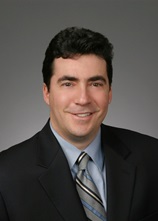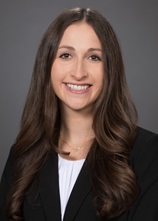Healthcare Update
Laboratory Compliance: The Latest Case Developments on Commission Payments
Laboratory providers should monitor two critical cases in the U.S. Court of Appeals for the Ninth Circuit that involve interpretation of the Eliminating Kickbacks in Recovery Act (EKRA) as applied to sales-based incentive compensation paid to employed marketers. EKRA prohibits knowingly and willfully paying or receiving any remuneration for the referral of individuals to laboratories and certain other providers unless an exception applies. In light of the limitations in EKRA’s exception for employment arrangements, many in the industry have raised questions about the reach of EKRA with respect to standard incentive compensation paid to employed marketers.
To that end, the same Ninth Circuit panel recently heard oral arguments in two coordinated appeals that squarely address whether sales-based incentive compensation paid to lab employees violates EKRA. Most notably, in one of the appeals, the Department of Justice (DOJ) openly stated in oral argument that EKRA does not reach “[normal] percentage-based payment” marketing arrangements absent aggravating evidence of improper conduct. This statement, available in a recording found here, is critical guidance to industry stakeholders who in recent years have questioned whether DOJ intends to pursue EKRA enforcement against a commonplace incentive compensation model for laboratory sales personnel.
What Is EKRA, and How Does it Affect Labs?
EKRA prohibits, with respect to “services covered by a health care benefit program,” the knowing and willful solicitation, receipt, payment, or offering of remuneration (including any kickback, bribe, or rebates) directly or indirectly, overtly or covertly, in cash or in kind, in return for
(i) referring a patient or patronage to a recovery home, clinical treatment facility, or laboratory;
(ii) inducing a referral of an individual to a recovery home, clinical treatment, facility, or laboratory; or
(iii) in exchange for an individual using the services of a recovery home, clinical treatment, facility, or laboratory.
Although EKRA was signed into law as part of the 2018 SUPPORT Act (Substance Use-Disorder Prevention that Promotes Opioid Recovery and Treatment for Patients and Communities Act) that primarily focuses on opioid use, it applies generally to all laboratories, as defined in 42 U.S.C. § 263a. The legislative history reveals that Congress enacted EKRA to curb “patient brokering,” a practice in which brokers are paid based on the number of patients they refer to drug treatment centers.
EKRA expands potential criminal kickback liability beyond the Anti-Kickback Statute and applies to remuneration paid to induce the purchase of services covered by all payors, not just federal healthcare programs, as “health care benefit program” is defined to include “any public or private plan or contract affecting commerce, under which any medical benefit, item, or service is provided to any individual, and includes any individual or entity who is providing a medical benefit, item, or service for which payment may be made under the plan or contract.”
Like the Anti-Kickback Statute, EKRA includes statutory exceptions, including an exception for compensation paid to employees and independent contractors that does not vary based on (1) the number of individuals referred to a particular laboratory, (2) the number of tests or procedures performed, or (3) the amount billed to or received from, in part or in whole, the healthcare benefit program from the individuals referred to a particular laboratory.
The U.S. Attorney General may, in consultation with the Secretary of the U.S. Department for Health and Human Services (HHS), promulgate additional EKRA safe harbors by regulations but has not done so to date. A violation of the law may result in up to 10 years in prison and criminal fines of up to $200,000 per violation.
Pending Ninth Circuit Coordinated Appeals
In November 2024, two closely watched EKRA cases in the Ninth Circuit with disparate interpretations of EKRA’s employment exception were assigned to the same panel and calendar on appeal. The District of Hawaii case was decided in 2021 and viewed favorably by the laboratory industry on the issue of sales-based incentive compensation paid to employed marketers. The Northern District of California case was decided in 2022 and contradicted the District of Hawaii’s holding.
- District of Hawaii case. In S&G Labs Hawaii, LLC v. Graves, the U.S. District Court for the District of Hawaii addressed whether sales-based compensation paid to an employee violates EKRA. S&G Labs Hawaii, LLC v. Graves, No. 19-cv-310, 2021 WL 4847430 (D. Haw. Oct. 18, 2021). The court ruled that a toxicology and Covid testing laboratory marketer’s employment contract, under which S&G Labs paid percentage-based compensation to the marketer, did not violate EKRA because the marketer was marketing to doctors, not referring individual patients to the lab. In reaching this conclusion, the court emphasized the fact that that the marketer’s client accounts “were not individuals whose samples were tested at S&G” but rather “were ‘the physicians, substance abuse counseling centers, or other organizations in need of having persons tested,’” and S&G was not compensated by those “clients.” The court held that the employed marketer was not inducing referrals of patients, and therefore the compensation was not paid to induce him to refer “individuals” to S&G. On this basis, the court held there was no violation of EKRA arising from the commission-based compensation provisions of the employment contract between the marketer and his laboratory employer.
- Northern District of California case. In contrast, in U.S. v. Schena, the U.S. District Court for the Northern District of California reached a different conclusion when reviewing a case brought by the government against the president of a clinical laboratory, alleging the defendant violated EKRA and committed Covid-related testing fraud. USA v. Schena, No. 5:20-cr-00425-EJD-1, 2022 WL 1720083 (N.D. Cal. May 28, 2022). Specifically, the government alleged that the laboratory submitted claims for reimbursement for medically unnecessary allergy tests and made misrepresentations regarding the Covid-19 test. Other allegations of egregious misconduct included that apart from the sales-based commissions, the marketers in Schena did not receive a salary or other compensation for their time; the laboratory based its marketing strategies and statements on allegedly deceptive and false information; and the marketers intentionally and improperly steered patients to Schena’s lab. The Northern District of California explicitly rejected the District of Hawaii's reading of EKRA, concluding that EKRA reaches situations in which a lab influences employed marketers by paying them to induce the physician’s referral of a patient to a laboratory.
In October 2024, DOJ filed an answering brief for the United States in the Schena appeal. In the brief, DOJ rejected the holding in S&G Labs Hawaii, stating that the District of Hawaii incorrectly “focused on the lack of evidence connecting the employee to individual patients.” In refuting the holding in S&G Labs Hawaii, DOJ took the position that “the EKRA prohibition is not restricted to only certain kickback recipients” and “the statute [EKRA] ‘says nothing about payment needing to be made based on the ‘direct’ recruitment of an individual patient.’”
However, at the oral argument a few months later in February 2025, DOJ proactively distinguished problematic incentive compensation arrangements from commonplace arrangements with employees. The DOJ attorney, from the Appellate Section Criminal Division, stated that “it’s very fact dependent” whether commission-based payments to employed marketers are suspect, “[a] percentage-based payment is not per se unlawful,” and “the structure of a contract alone would not be by itself sufficient evidence [to establish an EKRA violation].” The DOJ attorney confirmed that the government has to show “that the purpose of the ... quid pro quo was to induce referrals. It is not to compensate marketing or advertising or hours worked or other legitimate services, that it is in exchange for the referrals.”
These statements from DOJ support the industry view that absent a kickback or other remuneration from a marketer to a physician with the intent to induce patients, the mere fact the employee marketer receives sales-based incentive compensation is not — standing alone — an EKRA violation. Until the Ninth Circuit issues final rulings, the federal district court decisions bind only the parties to the case. Decisions from the Ninth Circuit could take a year or longer.
Conclusion
The interpretation of EKRA and its exceptions will continue to unfold in the years to come. In the absence of government regulations or guidance, labs evaluating their employee marketer compensation models should consider several key compliance steps, including these:
- monitoring EKRA litigation and documenting support for their compensation arrangements based on the plain language of the law and existing case law
- submitting amicus briefs directly or through trade or other associations on other key cases that may be filed
- submitting comments on sales-based incentive compensation to employee marketers in response to the request from HHS-Office of the Inspector General for stakeholder feedback on forthcoming compliance program guidance updates for clinical labs
- evaluating, on a quarterly basis, the company’s compensation models and relevant legal updates as the EKRA landscape continues to evolve
- monitoring Anti-Kickback Statute developments to identify possible policy or legal arguments to support EKRA positions
Finally, given that so much of current EKRA interpretation is based on case law, labs should consider setting up a framework to monitor EKRA court decisions such as the Schena case.
Attorney Advertising—Sidley Austin LLP is a global law firm. Our addresses and contact information can be found at www.sidley.com/en/locations/offices.
Sidley provides this information as a service to clients and other friends for educational purposes only. It should not be construed or relied on as legal advice or to create a lawyer-client relationship. Readers should not act upon this information without seeking advice from professional advisers. Sidley and Sidley Austin refer to Sidley Austin LLP and affiliated partnerships as explained at www.sidley.com/disclaimer.
© Sidley Austin LLP
Contacts
Offices
Capabilities
Suggested News & Insights
- Stay Up To DateSubscribe to Sidley Publications
- Follow Sidley on Social MediaSocial Media Directory



